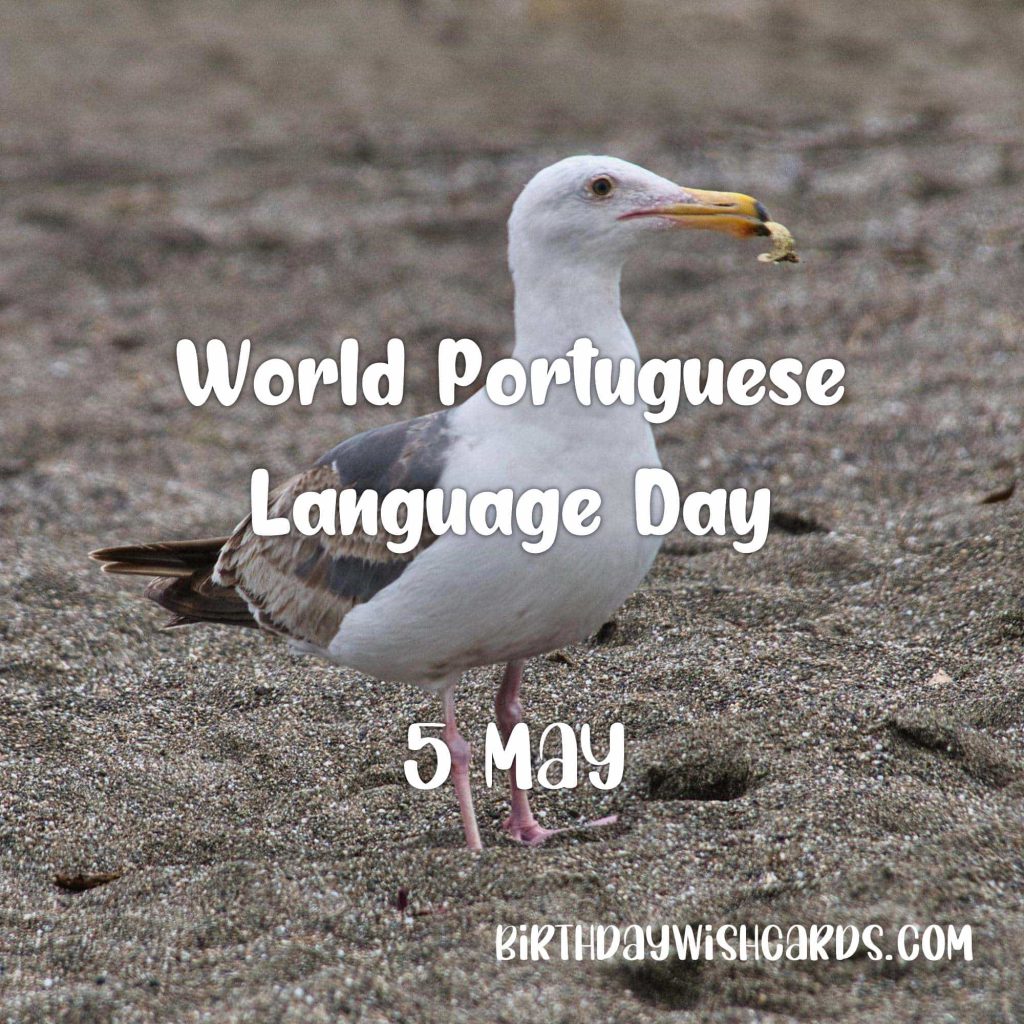
5 May: World Portuguese Language Day
World Portuguese Language Day, celebrated annually on 5 May, is dedicated to honoring the Portuguese language and the diverse cultures of the Lusophone world. Established in 2009 by the Community of Portuguese-speaking Countries (CPLP)—an intergovernmental organization fostering cooperation among nations where Portuguese is an official language—this day highlights the language’s global significance. Since 2000, the CPLP has worked closely with UNESCO to recognize and celebrate the cultural and linguistic richness of Portuguese-speaking communities worldwide.
In 2019, UNESCO’s General Conference officially proclaimed 5 May as World Portuguese Language Day. This recognition underscores the global importance of Portuguese as a language that unites millions of people across continents and cultures.
Portuguese Speakers Around the Globe
Portuguese is among the world’s most widely spoken languages, with over 265 million speakers spanning every continent. It is the most spoken language in the Southern Hemisphere, reflecting its extensive geographical reach. Portuguese is present in Europe, South America, Africa, Asia, and even parts of Oceania.
Beyond being a means of communication, Portuguese is a vital language for international dialogue, commerce, and cultural exchange. Its continued growth and influence are fueled by robust demographic trends and expanding economic ties among Lusophone countries.
The Cultural Significance of Portuguese
Portuguese is more than just a language; it is a vibrant cultural force that connects people across continents and backgrounds. From the literature of Portugal and Brazil to the music and traditions of African Lusophone countries, Portuguese embodies a rich and dynamic heritage.
Each Lusophone country adds unique elements to the global Portuguese-speaking community. This diversity enriches the language itself, with varied accents, idioms, and expressions reflecting local histories and experiences.
World Portuguese Language Day is celebrated with cultural exhibitions, literary readings, educational activities, and musical performances—all designed to promote the language’s role in fostering understanding and cooperation worldwide.
Where Is Portuguese Spoken?
- Portugal: The birthplace of the Portuguese language and a continuing cultural and linguistic center.
- Brazil: Home to the largest Portuguese-speaking population, where the language is deeply woven into the nation’s diverse culture.
- Africa: Countries such as Angola, Mozambique, Guinea-Bissau, Cape Verde, and São Tomé and Príncipe have Portuguese as an official language, reflecting both colonial history and ongoing cultural ties.
- Asia: East Timor and Macau also recognize Portuguese as an official language, preserving its use in administration and education.
Portuguese Language and Education
Educational institutions worldwide play a crucial role in sustaining and expanding the Portuguese language. Universities offer programs in Portuguese language and literature, Lusophone studies, and international relations, fostering academic research and cultural exchange.
The CPLP and UNESCO also support initiatives to promote Portuguese language teaching and learning, especially in countries where it is a minority language. These efforts help ensure that younger generations continue to value and use Portuguese on a global scale.
Economic and Diplomatic Impact
Portuguese is a key tool in international diplomacy and economic partnerships. Lusophone countries collaborate through the CPLP to strengthen political ties, trade relations, and development projects.
Brazil’s growing economy, together with the natural resource wealth of African Portuguese-speaking countries, creates significant opportunities for international investment and cooperation. Proficiency in Portuguese opens doors for businesses and professionals in these dynamic markets.
Portuguese Language in the Digital Age
The digital era has further expanded the reach of Portuguese. Online platforms, social media, and digital content in Portuguese connect Lusophone communities around the world.
This digital presence not only preserves the language but also adapts it to new forms of communication, ensuring its continued relevance for future generations.
Celebrating World Portuguese Language Day
Each year on 5 May, individuals, organizations, and governments celebrate the Portuguese language through a variety of activities and campaigns, including:
- Language workshops and seminars
- Public readings of Lusophone literature
- Music and dance performances featuring both traditional and contemporary styles
- Exhibitions showcasing Lusophone art and history
- Educational outreach to promote Portuguese language learning
These events foster pride in Lusophone identity and encourage intercultural dialogue, highlighting the values of diversity, solidarity, and shared heritage.
Future Prospects for the Portuguese Language
The future of the Portuguese language is bright. Demographic growth in Lusophone countries, increased cultural exchange, and expanding digital communication all contribute to its vitality.
International organizations such as the CPLP and UNESCO will continue to support language preservation and promotion. These initiatives aim to maintain Portuguese’s relevance in global affairs and everyday life.
” />
” />
” />
” />
For more information on World Portuguese Language Day and UNESCO’s efforts to promote linguistic diversity, visit the official UNESCO page on Portuguese Language Day. To learn more about the Lusophone community and its initiatives, explore the Community of Portuguese Language Countries (CPLP) website.




